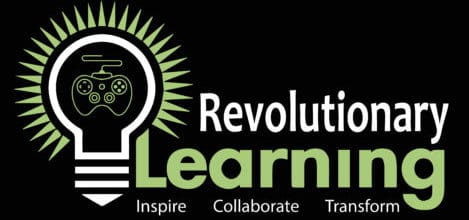Sylvester Arnab, Ph.D. Coventry University, U.K.
There are so many terms that have been used to categorize the enabling tools, methodologies, and principles – serious games, game-based learning, gamification, etc. In this book, I emphasize a more holistic approach in enabling anyone from any background to explore the characteristics and components of games and gameplay for their own practices.
Based on 10 years of experience in research, development, and practice in this domain, my observation is that games and gameplay are becoming more pervasive – not only technologically but also contextually and culturally. This aligns with how education is continuing to blend seamlessly into our daily lives and vice versa. The world (both digital and physical) has become our biggest playground for exploration, experimentation, and meaning-making.
“Game science in this book is defined as a field that investigates how playful and gameful experiences are designed and applied based on strategies and elements commonly used by game-based approaches (analogue and/or digital), which include game-based learning, serious games, and gamification and how their operations are underpinned by pedagogical and motivational theories and practices…” Arnab (2020, p. 57)
Game Science focuses on the use of game principles in a strategic way to make a process and experience more accessible and engaging, which is further discussed and explored throughout the book.
Hybrid Learning
As pedagogical paradigms continue to evolve in response to the shift in socio-cultural, economic, and technological landscapes, learners are expected to be more self-regulated, agentic, and empathic in the way they author and configure their learning experiences.
This calls for hybridity in the practice of education, which breaks the boundaries of the traditional classroom and didactic methods, favoring the overlapping and cross-fertilization of often separate educational dimensions and modalities. Such modalities include pedagogical constructs, spatial modality (digital/physical, online/offline), formality, and temporality of contexts, personal and social relationships, as well as identities.
“With the perspectives of learning at the speed of need across different spatial, contextual and material modalities, and the blending of these modalities, hybrid learning proposes a more pragmatic and holistic approach for finding the right combination out of all modalities, whether they are offline or online, digital or analogue, passive or experiential, formal or informal…” Arnab (2020, p. 40)
Hybrid learning is strategic. It defines a series of varied processes and practices at the speed of need with a focus on the experience compared to blended learning that is more tactical, where the configuration of educational modalities is constrained by the binary of digital and physical didactics.
Hybrid education emphasizes the value of relevant and meaningful experiences. It proposes the need to configure and contextualize the connections between experiences and situations, devices, resources, and people, and put these together in a way that makes sense for the learning process.
Game Science and Hybrid Learning
In the book, I propose a hybrid approach as a principle that is not defined and restricted by specific technologies and/or pedagogies but a practice that is rooted in holistic considerations at the speed of need. Putting the learners at the heart of the agenda, hybrid education allows their learning experience to be configured as and when it is needed for supporting the learners’ growth in their learning process. This opens opportunities for the different modalities of games and game-like experiences (whether they are analogue, digital, or hybrid) to be applied in an educational context that crosses formality, spatial and temporal boundaries.
Arnab, S. (2020). Game Science in Hybrid Learning Spaces. (1 ed.) (Digital Games, Simulation and Learning; No. 6). NY: Routledge Taylor & Francis Group.
About the Author
I’m currently a full Professor in Game Science (Applied Games), based at Coventry University’s Disruptive Media Learning Lab (DMLL). Game Science refers to playful and gameful methodologies for user engagement, experience design and behavioral change, which include investigations of the impact of applied gaming, serious gaming, game-based learning, gamification and playful techniques in various domains, underpinned by pedagogical, motivational and psychological theories and practices.
I’m a fan of gameful, playful and persuasive design that transforms ordinary tasks into extraordinary experiences. I research, write and evangelize about such transformations. My research interests thus include the application and impact of games science (gameful and playful design, serious games, gamification, serious play, game (design) thinking) and other interactive, wearable, persuasive and pervasive techniques and technologies in various application domains including teaching and learning, and health. I currently have over 100 publications within the area of virtual worlds, simulation, serious games and gamification, and I have edited a book: Serious Games for Healthcare- Applications and Implications. A book that is exploring the potential and impact of Game Science in hybrid learning spaces will be published with Routledge 2020/21.
I am a public speaker, keynoted at various events in the UK, Europe and internationally. I am also a trained facilitator for LEGO® SERIOUS PLAY® methodology. Two of my projects have won the Gamification Award 2019 for Software and Education and Learning.
Before joining Coventry University, I was a Research Fellow at the International Digital Lab, University of Warwick, and a lecturer at Universiti Malaysia Sarawak, Malaysia. I completed a PhD in Engineering focusing on visualization and simulation at the University of Warwick in 2009.
I am of Borneon origin, love beautiful things and game for new adventures!
